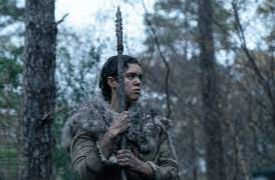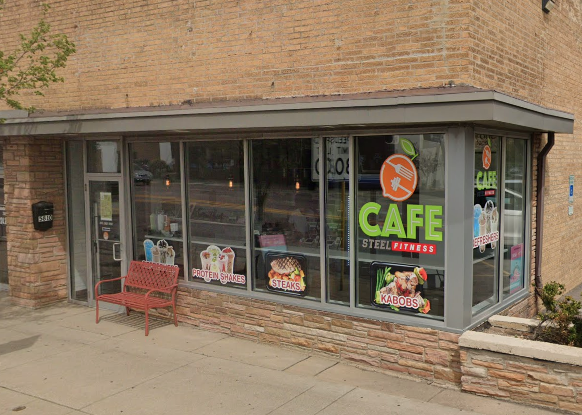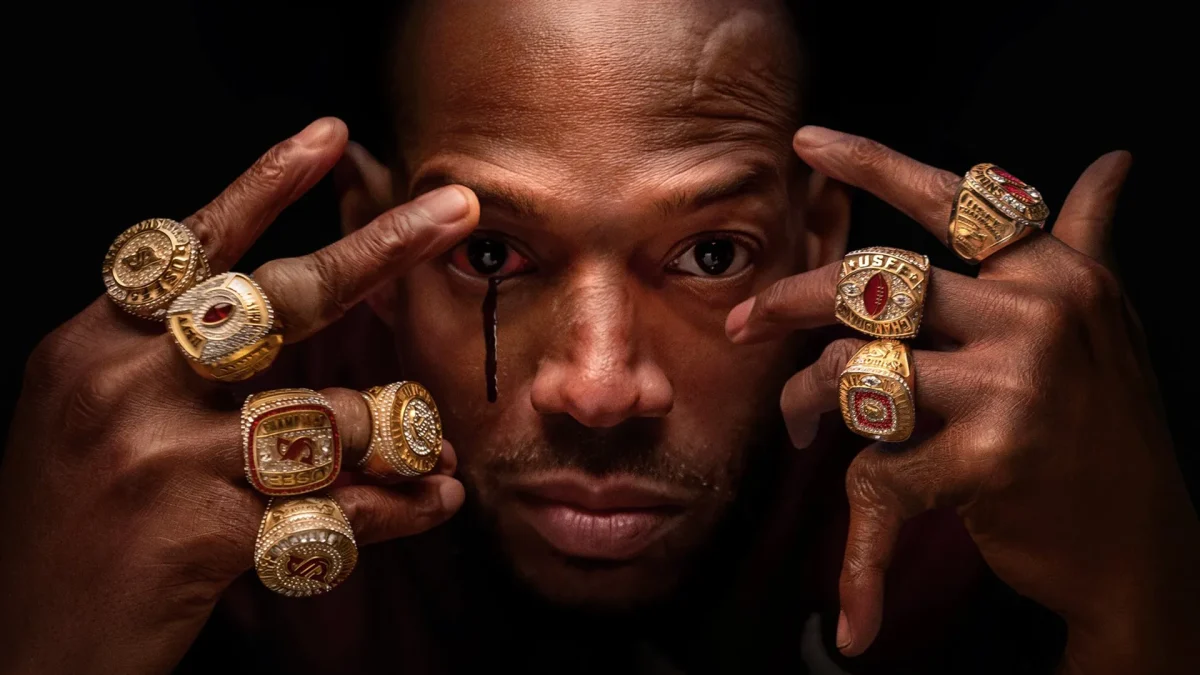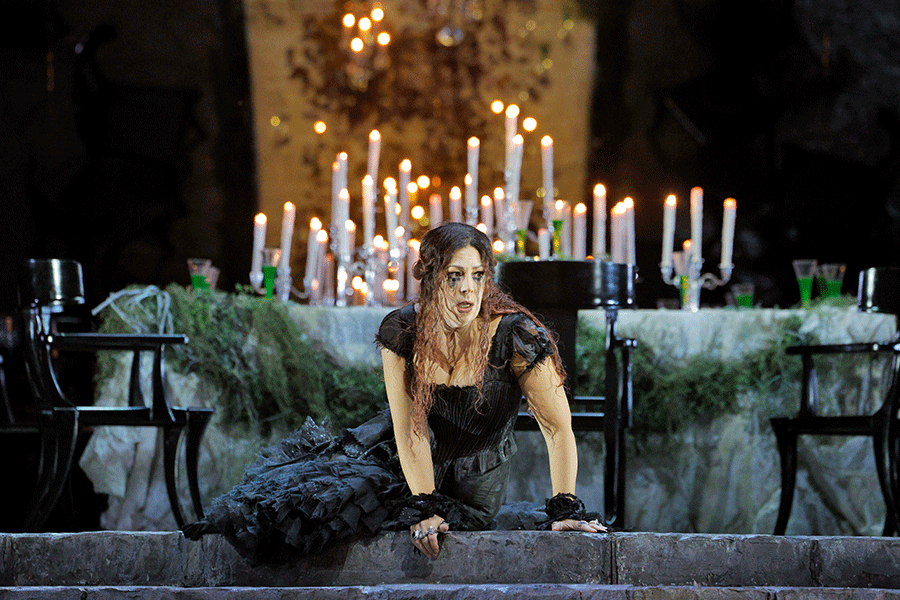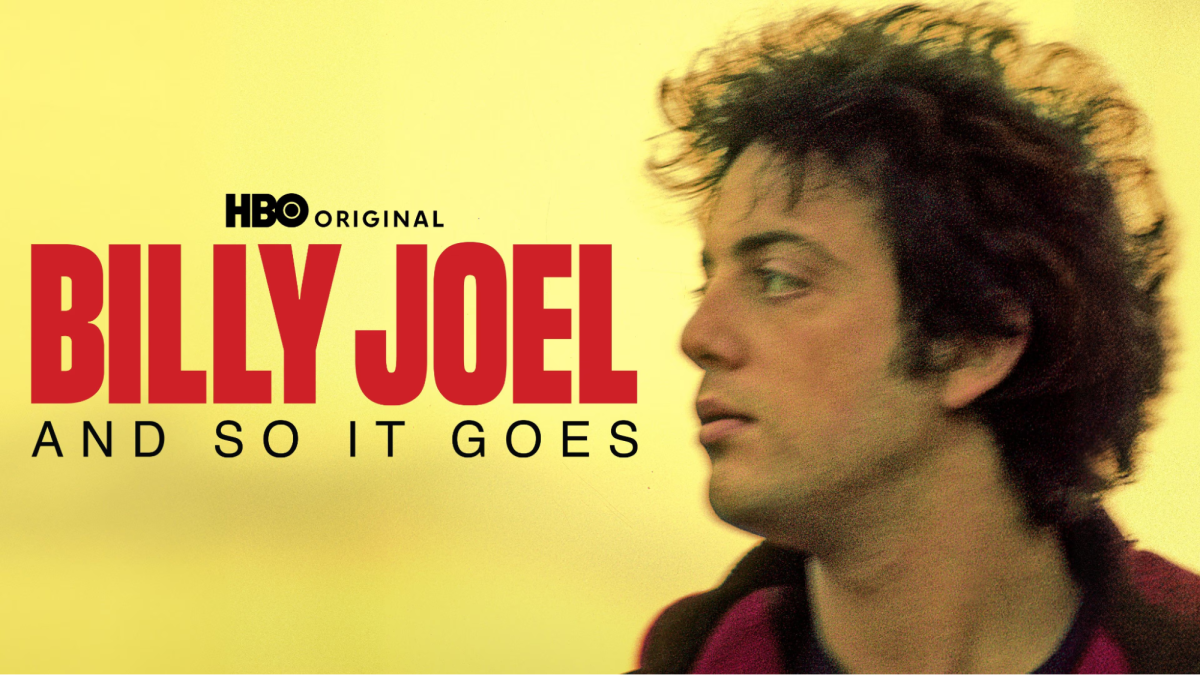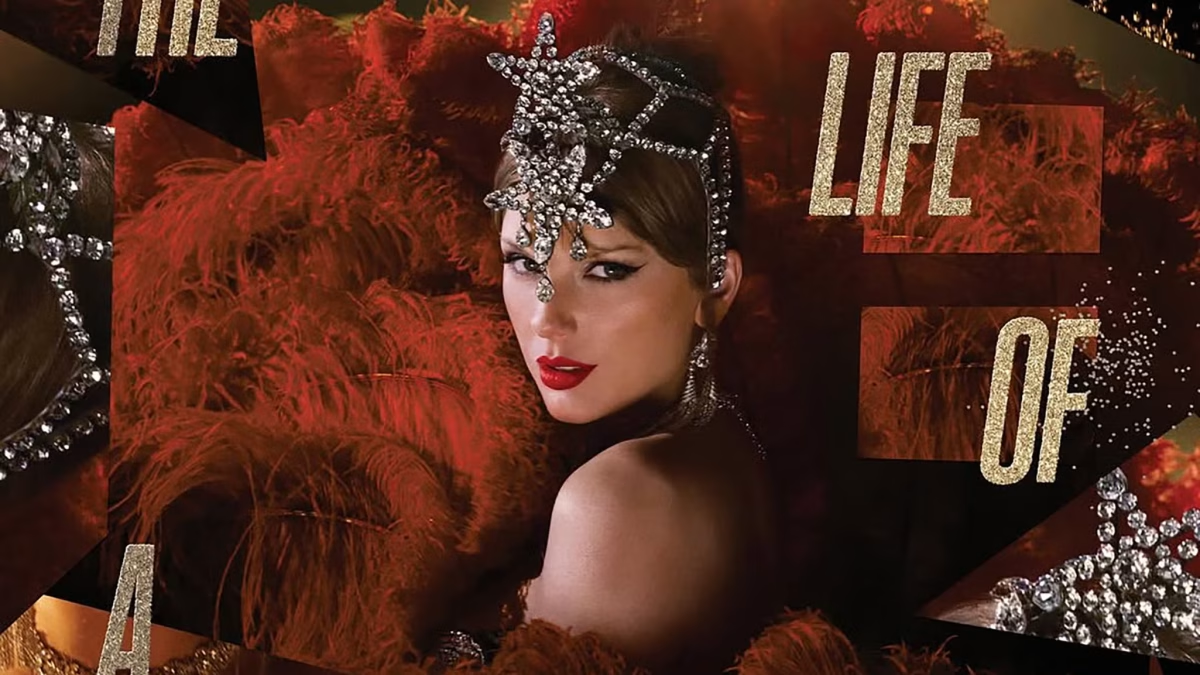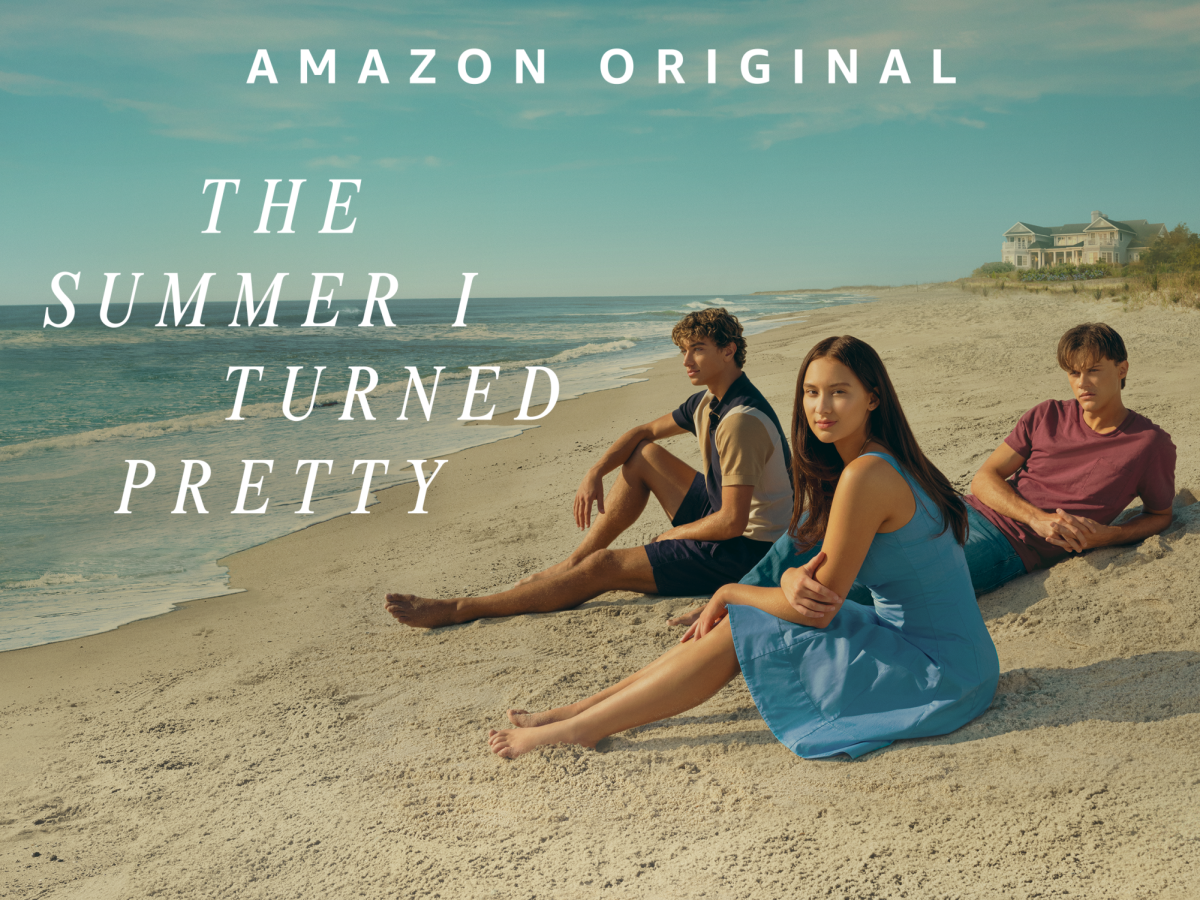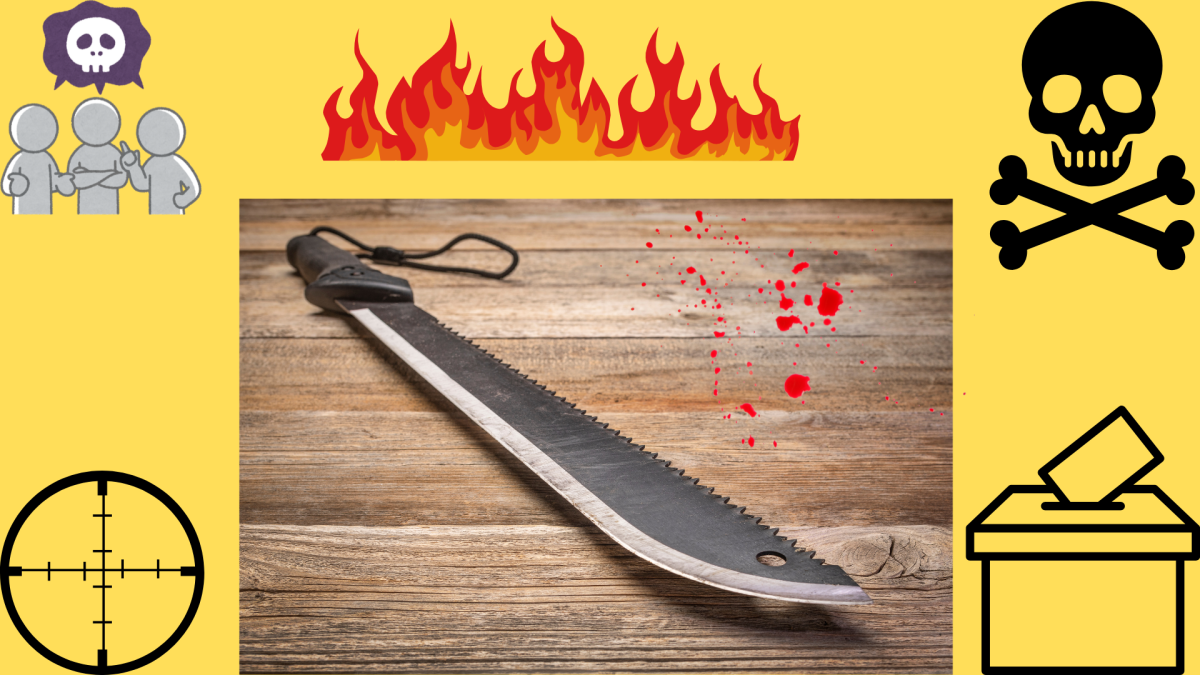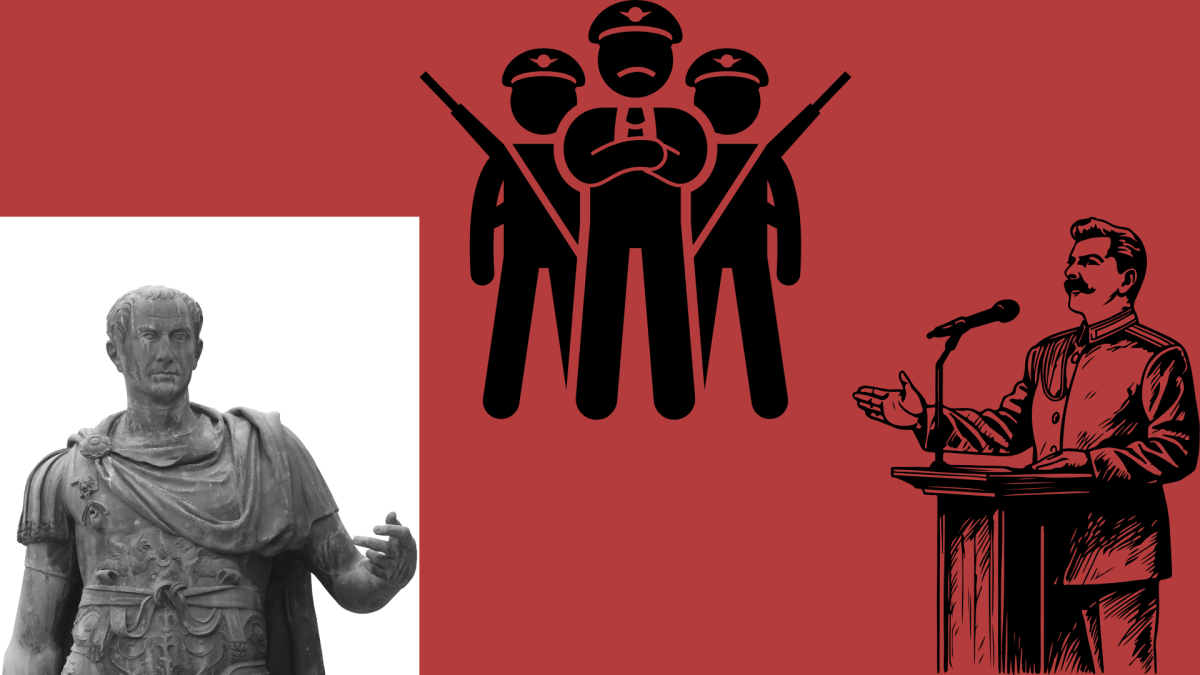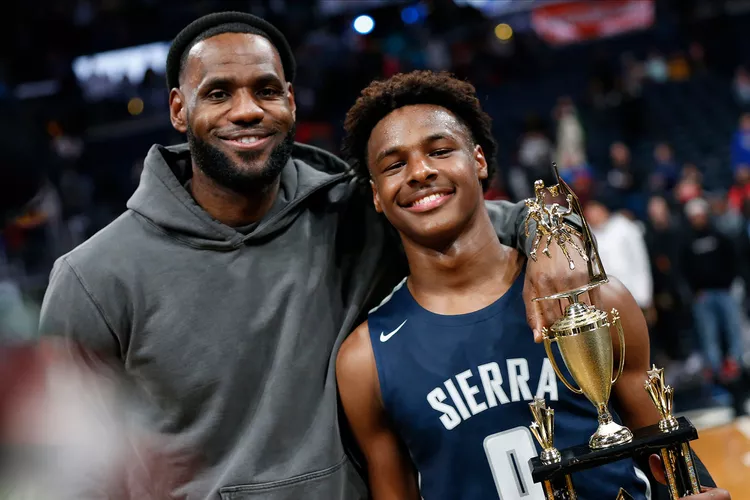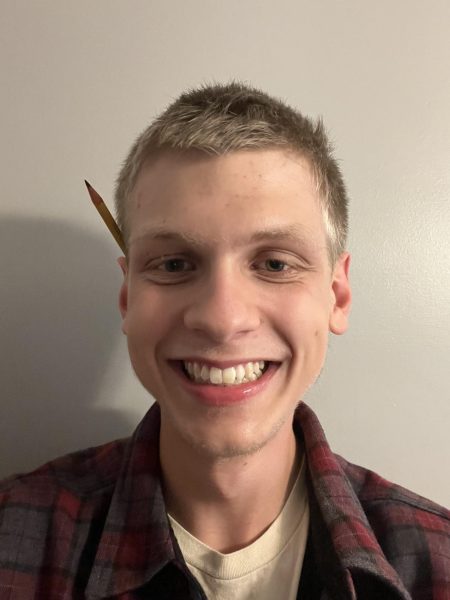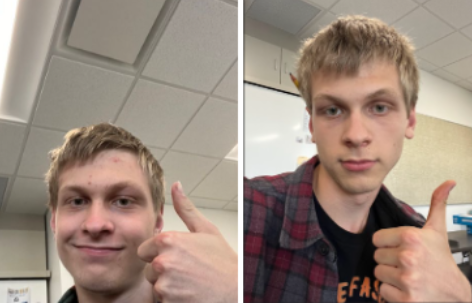
Reed: So, we watched that new horror movie, Out of Darkness…and it was masterful.
Griffin: Or at least, it could have been…
Reed: How can you not like this film, Griffin? It’s filled with some of the best cinematography of recent years!
Griffin: Alongside inconsistent and illogical details, in a plot that’s too short!
Reed: Hold on–we’re getting ahead of ourselves again! We need to explain the movie. Out of Darkness is a rare prehistoric horror film centering on a clan of humans who are migrating across unforgiving terrain. They are hubristic leader Adem (Chuku Modu), his pregnant wife Ave (Iola Evans), their pampered first son Heron (Luna Mwezi), Ave’s brother Geirr (Kit Young), the crotchety and fearful old Odal (Arno Luening), and so-called “stray” Beyah (Safia Oakley-Green). When Heron is kidnapped by a mysterious beast, the clan ventures into a forbidding forest to try to rescue him, but soon find themselves at the creature’s mercy.
Griffin: Except it’s not always a creature, is it? In the forest, the group must hurry to make a fire–because the sky above them is darkening with unnatural speed. It looks as though, somehow, the land that the group has entered is alive and malevolent–but that detail is never repeated. Thereafter, the movie pits them against a simple monster.
Reed: Well, I thought that scene just showed night falling rapidly and the group having to build a fire so they couldn’t get picked off in the darkness. And they have more than just monsters to deal with. Adem’s aggression and impulsivity endangers and unnerves the other clan members. Once the monster takes him too, the others quickly start to turn on each other out of fear. It’s easy to wonder whether we, in their position, would do the same thing. The theme of the movie, it seems, is that humans are the most evil beast.
Griffin: But how much better could that conflict have been in a longer movie? As it is, the group starts splintering almost as soon as Heron is nabbed. To be sure, this event opens up delicious tension and shocking character revelations: Adem is filled with brutish wrath as he runs after whatever’s gotten his boy, and the others begin to suspect he can only lead them to their deaths. Once Adem is gone as well, the plot thickens further–but all this tension reaches its climax just a couple scenes later. If not for the movie’s 87-minute run time, we might get to spend a little more time simmering in the stew of rivalries and clashing personalities: Odal’s fearfulness, Geirr’s hunger to prove his capability as a leader, Beyah’s eerie, single-minded pursuit of survival. Instead, for no reason I can clearly see, the plot stays there for a moment and then just hurries along.
Reed: Well, yeah, but I think previous scenes, like Beyah grasping her knife as she stares at Adem, imply the group is already unstable. Heron’s taking is grievous enough to fracture them entirely. And the actors do an amazing job of communicating this divide. Since they either deliver their lines in an invented ancient language or are silent, the cast has to use tone, facial expressions, and body language more effectively to communicate who the characters are and what they’re thinking–and all of them step up to the challenge.
Griffin: There’s no faulting the acting in this movie, to be sure–but I can’t say the same for the plot. For one thing, Beyah is constantly called a “stray,” but her backstory is never expanded on: did she used to be part of a different group of early humans? Was it these five who took her in, or was she first part of the group that they split off from? Other characters get proper hints of exposition: for instance, while talking to Heron at the beginning, Odal paints Adem as a rebel who rejected his clan’s plan for a different migration. And yet for Beyah, arguably the most captivating character of this film, there’s nothing.
But far and away, my biggest beef with this movie is the ending. For the sake of avoiding spoilers, we can’t talk about it–not that you’d miss much. Suffice it to say, the movie’s plot becomes even more basic.
Reed: Well, OoD’s story might not be quite up to snuff, but how it tells the story sure is! Quick camerawork follows the group as they rush through the forest in blind panic–at times, the camera is shaken to simulate crashing headlong through brush. An expansive early shot of the terrain shows a vast swath of land, colorless and resting under a gray sky: a clear visual cue that this place is dreary and inhospitable. There are even times when the camera is turned upside down, as though to symbolize that the group’s lives are being turned on their heads and they are heading into the unknown.
Griffin: Heading into the unknown? You mean, like Senior year?
Reed: Augh! Don’t talk to me about “the S-word”–it gives me the willies. Now, sum-up time!
Griffin: Don’t mind if I do! Out of Darkness–plunge into terror with us…and then plunge out of the theater before the last twenty minutes.


